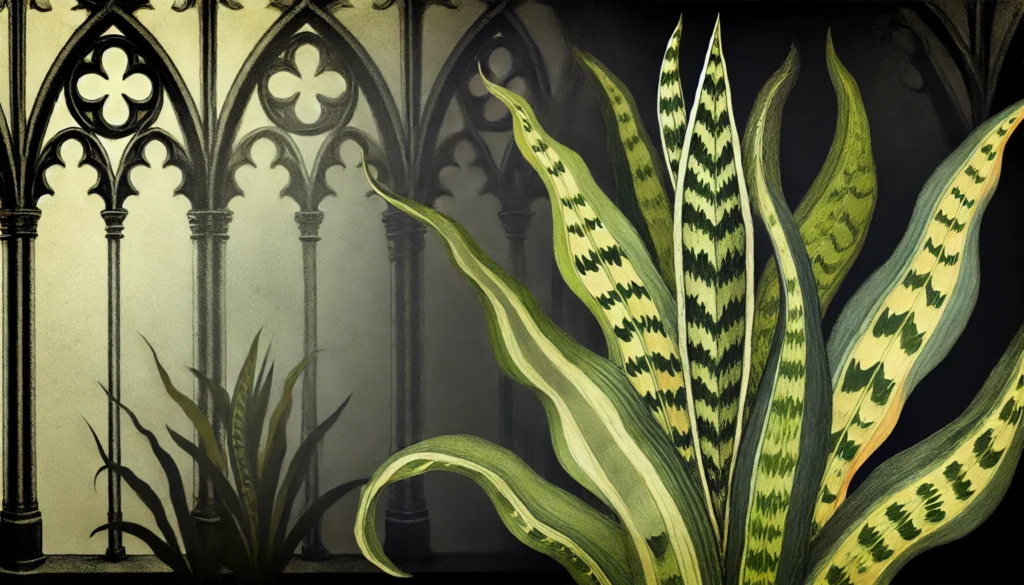

Home » Cat Plants » How Dangerous is the Snake Plant Plant for Cats?

The snake plant, also known as Sansevieria trifasciata or mother-in-law’s tongue, is a popular houseplant known for its striking appearance and low-maintenance nature. However, for cat owners, it‘s crucial to be aware that snake plants are indeed toxic to cats. While not an allergy in the traditional sense, ingesting any part of the snake plant can lead to various health issues in felines.
Snake plants contain saponins, which are toxic compounds that can cause harm to cats if consumed. These plants are commonly found in households as decorative indoor plants, often placed on shelves or as floor plants.
Ingestion may cause mild gastrointestinal upset, but is generally not life-threatening.
Ingestion can result in mild symptoms like vomiting, diarrhea, or drooling. Rarely fatal but may require veterinary care.
Eating these plants can lead to more pronounced symptoms like abdominal pain, lethargy, or difficulty breathing. Veterinary intervention may be necessary.
Ingesting even small amounts can cause severe symptoms like organ damage, seizures, or cardiac failure without rapid treatment.
All parts of these plants are extremely poisonous to cats and can quickly lead to death, even with immediate veterinary care.
** Please note: Please note that toxicity level can vary based on the amount ingested and the specific cat. It's always best to keep these plants completely inaccessible to cats and seek immediate veterinary care or call the poison hotline if you suspect your cat has ingested any part of a toxic plant.
If your cat has ingested any part of a snake plant, it’s essential to be aware of the potential symptoms they may experience. Common signs of snake plant toxicity in cats include:
If you suspect your cat has consumed a snake plant and is exhibiting any of these symptoms, it’s crucial to seek veterinary care promptly.
When you take your cat to the veterinarian for suspected snake plant toxicity, they will likely follow these steps to diagnose and treat your feline friend:
For more information on snake plant toxicity in cats, visit the ASPCA Animal Poison Control Center.

A: Yes, the Snake Plant (Sansevieria trifasciata) is toxic to cats. It contains saponins, which can cause symptoms like vomiting, nausea, and diarrhea if ingested.
A: If a cat eats Snake Plant, it may experience gastrointestinal issues such as vomiting and diarrhea. Immediate veterinary care is necessary to prevent further complications.
A: Yes, all parts of the Snake Plant, including the leaves, stems, and roots, are toxic to cats. These parts contain toxic compounds that can lead to poisoning if ingested.
A: Even small amounts of the Snake Plant can be harmful to cats. Ingesting any part of the plant can result in toxic reactions, so it’s crucial to keep it out of reach of pets.
A: Snake Plant poisoning is rarely fatal but can cause significant health issues in cats. Quick treatment is essential to alleviate symptoms and ensure a full recovery.
A: If your cat ingests Snake Plant, contact your veterinarian immediately. Early intervention is critical to reduce the toxic effects and improve your cat’s chances of recovery.
Snake plants, native to West Africa, have been popular houseplants for decades due to their striking appearance and easy care requirements. The plant’s long, upright leaves with green and light green striped patterns have earned it the nickname “mother-in-law’s tongue.” Snake plants are known for their air-purifying properties, as they can remove toxins such as formaldehyde and benzene from the air.
In some cultures, snake plants are believed to bring good luck and prosperity when kept indoors. However, it’s essential for pet owners, particularly those with cats, to be aware of the plant’s toxic properties and take necessary precautions to keep their feline companions safe.
Please note: The information shared in this post is for informational purposes only and should not be considered as veterinary medical advice.
🐾 A hilarious or heart-melting cat video
🐾 Our latest paws-on review of a cool cat toy